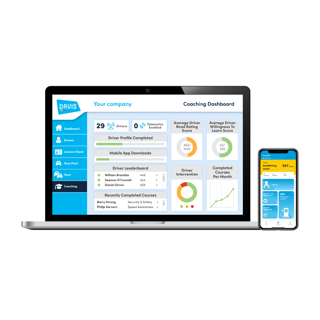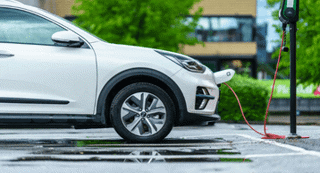A majority of business drivers say that in-car technology identifying the location of their vehicle is no longer an issue.
The findings, which can be revealed exclusively by Fleet News, suggest a major shift in the attitude of drivers towards the acceptance of telematics.
Since the technology became available, fleets have had to deal with ‘spy in the cab’ concerns from employees. However, ALD Automotive’s survey of 500 business drivers reveals that 60% would now be happy with the location of their vehicle being identified.
And what’s most revealing is the fact that 95% of the survey respondents were company car drivers, traditionally the most averse to telematics.
ALD’s research has been backed up by an online poll conducted by fleetnews.co.uk, which showed that only 21% of respondents would be unhappy with its use.
Keith Allen, managing director of ALD, said: “The survey represented drivers from a cross-section of businesses, from blue-chips to SMEs, with the results showing that privacy where telematics is concerned is no longer a key issue for most company car drivers.
“Of course there will still be some businesses and drivers that have issues with having their vehicle being identified. But as the wide range of benefits are fully recognised and outweigh these concerns, telematics usage will become increasingly popular and possibly the norm within corporate fleets over the next five years, just as it has become within the commercial vehicle fleet sector.”
The ALD research suggests improved fuel consumption as one of the primary motivators for drivers embracing the use of telematics. Almost nine out of 10 (87%) said they would approve of on-board technology that could help reduce their fuel bill and 71% said they would be happy having software installed that could help improve their driving style in terms of acceleration, braking, speeding or idling.
ALD said it had seen a marked increase in the popularity of its telematics system ProFleet2 as pump prices have increased.
“Over the past seven years, telematics technology has evolved hugely, delivering a wide range of functionality that can help businesses to better manage the costs and risk associated with their fleet,” explained Allen. “At the same time business drivers have also become far more positive about the use of telematics, recognising the benefits it can deliver to themselves as well as their employers.”
For example, telematics can measure journeys giving accurate detailed reporting of business journeys and private journeys, reducing the risk of ‘inflated’ guesswork with fuel reimbursement.
It can also highlight excessive use and any unauthorised driving, for instance, where commercial vehicles are allowed to be taken home but not used outside business hours.
Allen said: “If that saved fifty miles per week over three years the numbers soon add up. Convert that figure into the amount of fuel consumed and the cost savings become substantial.”
Scheduling of work can also be improved by identifying which driver is closest to a particular job, while work patterns can be improved with optimum routing.
While company car drivers accounted for most of the survey returns, through its own experience with ProFleet2, ALD has found that van drivers are less concerned about having on-board technology, as the vehicles are used far more exclusively on company business.
Allen concluded: “Companies both large and small are looking for more control and new ways in which they can reduce their operating costs. Telematics is one of the most effective ways you can do this - there’s no better way of managing your fleet’s activity on the road.”





















Login to comment
Comments
No comments have been made yet.